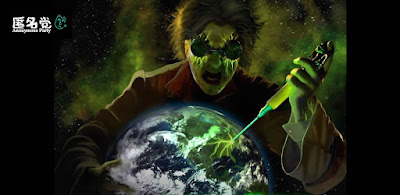Donald Trump’s China Trade Stance Could Harm Japan, South Korea
Asian U.S. allies would likely suffer collateral damage from high U.S. tariffs on China
By John Lyons
Updated Nov. 13, 2016 8:43 p.m. ET
8 COMMENTS
HONG KONG—President-elect Donald Trump’s promised trade tariffs on China would likely hurt U.S. allies Japan and South Korea, which have become increasingly dependent on the Chinese market.
Mr. Trump vowed to slap a 45% tariff on all imports from China if it doesn’t alter practices such as subsidizing steel and other industries, and to pull the plug on a Trans-Pacific Partnership, or TPP, a 12-nation free-trade accord encompassing America’s chief Asian allies. The accord effectively died Friday, and Obama administration officials acknowledged there is now no way to advance it.
During a 15-year growth spurt, China became a top export destination for a range of nations, surpassing the U.S. as the biggest market for manufacturers like South Korea and commodity producers such as Brazil. If China slows because it is hit by tariffs, it will buy less from these nations and they will slow, too.
That raises the stakes for any trade actions being considered by the Mr. Trump and his aides. In the last 15 years, China accounted for a third of the world’s growth, according to the International Monetary Fund. Although Chinese importing has slowed recently, the country still purchased 9% of the world’s exports last year, triple its share in 2000.
“For many countries around the world, China is now the biggest trading partner, so this kind of tit-for-tat trade protectionism with China will dampen the atmosphere for the international trading community,” said Yorizumi Watanabe, a trade expert and professor at Japan’s Keio University. “That is no good for Japan or anyone else.”
According to Daiwa Securities, just a 15% tariff on Chinese goods would result in a one-percentage-point decline in China’s growth rate—enough, researchers at the IMF calculated this year, to likely shave a quarter-point off global growth.
Hardest hit would be nations such as Japan, South Korea and Taiwan, which not only export goods to China for consumption, but also form a big part of sprawling international supply chains for products like Apple Inc.’s iPhone, which are assembled in China.
Asian economies have been more sensitive to changes in China than the U.S. since 2006, according to a recent study by HSBC comparing the impact on the region of a one-percent increase in output by the U.S. versus the same increase by China.
“China is in the driver’s seat of Asia’s trade, and its influence in the immediate region is only growing,” the authors said.
Even if directed at China, a rise in U.S. protectionism would hit South Korea, a major exporter of electronics to China. A paper published by IMF researchers this month estimates South Korea loses a half percentage point of growth for every one-percentage-point slowdown in China.
South Korea signed a free-trade agreement with the U.S. in 2010 and could benefit from less competition if China is hit by tariffs. But that deal may not protect South Korea, according to Capital Economics, since Mr. Trump has called it a “disaster” and is against such accords in general.
Japan also faces multiple risks. The world’s third-largest economy had been banking on the TPP to boost access to the U.S. and help end its long stagnation.
Like South Korea, Japan is also a major exporter to China. And its highly globalized car manufacturers such as Toyota Motor Corp. and Nissan Motor Co. would be hit hard if Mr. Trump follows through with plans to renegotiate the North American Free Trade Agreement, since many Japanese cars are assembled in Mexico for export to the U.S.
What is more, the uncertainty caused by changing U.S. policies could strengthen the Japanese yen, a safe-haven currency, further eroding the country’s exports.
It is far from clear how much of Mr. Trump’s campaign rhetoric will become policy. Many observers have suggested the 70-year-old real-estate tycoon may simply use his threats of big tariff increases to negotiate smaller concessions. They cite the fact that higher tariffs on Chinese goods would mean U.S. consumers paying more for clothing and electronics.
“My guess is there will be some negotiations or renegotiations, but we will avoid the most extreme outcomes, though the long-term tendency is toward increased protectionism,” HSBC economist Joseph Incalcaterra said.
http://www.wsj.com/articles/donald-trumps-china-trade-stance-could-harm-japan-korea-1479076681
おめでとう!亜Qサマナの諸君!(爆wwwwwwwww

6 件のコメント:
米TPP脱退なら「中ロと協定も」 ペルー大統領
日本経済新聞 - 2日前
うわあああああ
まあ日本がキムチとエンガチョできてないのだしこうなりますわな…
祝、トランプ次期大統領、逆法則発動確定
クネさん可哀想 莫大な経済援助しま~す>< 東朝鮮の天ちゃん
日本はバカの一つ覚えで流行りの模倣商品を作って資源を無駄にするだけ
中(台)韓は日本の部品を使ってダンピングでシェアを強引に伸ばしているだけ
そりゃ世界からNoを突き付けられて当然のアジアの空気読めない余分三兄弟(笑)
なにこの自ら真空パックされに行くスタイル、まじで一般人には理解不能過ぎw
まぁ所詮無能なあたしは平穏無事に人生が終われるよう祈るばかりですけどね(爆)
コメントを投稿